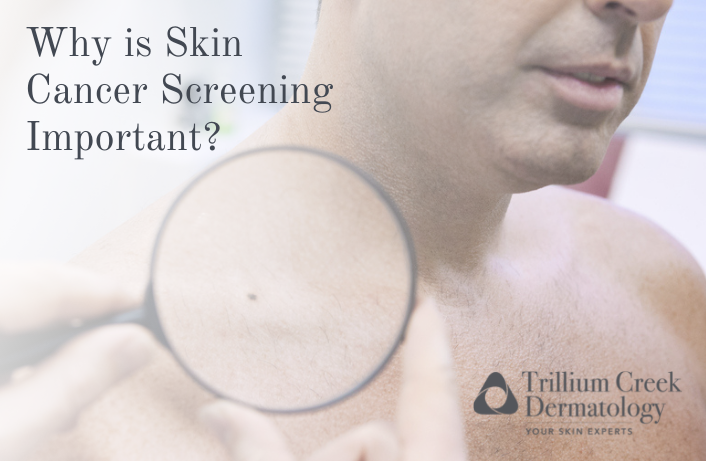
Summer is right around the corner, which means more of us will be spending time outdoors and soaking up the sun. However, you will want to be sure to take the proper precautions to protect your skin. When you are looking forward to the warmer weather, take some time to learn about skin cancer screenings and why they are so important to your health.
The Prevalence of Skin Cancer
Anyone of any skin color can get skin cancer. In fact, according to the Skin Cancer Foundation, one out of five Americans will develop skin cancer by the age of 70. This may be because skin cancer is the most common form of cancer. Skin cancer is caused by the sun’s UV rays, which can cause damage and cellular changes to your skin, leading to problems. By wearing sunscreen when outdoors, you are blocking these rays, but most people either do not wear sunscreen, don’t apply enough of it, or forget to cover sensitive areas such as the scalp and ears.
Types of Skin Cancer
The three types of skin cancer include basal cell carcinoma (BCC), squamous cell carcinoma (SCC), and malignant melanoma. BCC and SCC are the most common types of skin cancer and are rarely life-threatening. Melanoma is usually more serious and can spread quickly throughout the body.
Basal Cell Carcinoma
This usually presents as an open sore that oozes, crusts, bleeds, or will not heal after two weeks. It is often a pink or red patch of flaky skin that has no symptoms. Sometimes, it can also look like a pearly or pink bump resembling a pimple.
Squamous Cell Carcinoma
This cancer can appear as a red, scaly patch that bleeds or crusts. It can also be a wart-like growth that increases in size with a central indentation and are be tender to the touch.
Melanoma
Melanoma often appears as a mole that is asymmetrical, has uneven borders, has changed in color or contains multiple colors, is larger than ¼ of an inch, or has changed over time.
All About Skin Cancer Screenings
Skin cancer screenings are important because they can ensure that you detect any suspicious-looking moles before they turn cancerous. Also, when caught early, you have a better chance of successfully treating skin cancer.
During a skin cancer screening exam, your dermatologist will look at your skin throughout your body. This will include your head, face, ears, breasts, groin, buttocks, and even toes! Moles, freckles, and bumps can appear almost anywhere on the body, so it is important that the exam is thorough.
A biopsy will be taken through a simple procedure if an area looks suspicious. The entire skin cancer screening process usually only takes 15 minutes to complete, but it is essential to ensure you are healthy.
Contact Us Today
If you are due for your annual skin cancer screening exam, give Trillium Creek Dermatology a call today, or click on our online message button! We will be happy to book your appointment to ensure that you and your skin are in tip-top shape. We have five convenient locations in Brunswick, Medina, Strongsville, Wadsworth, and Wooster.


